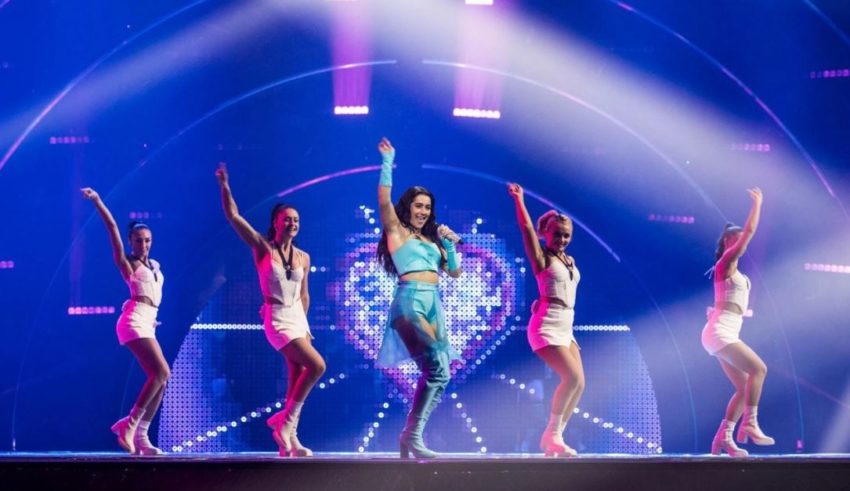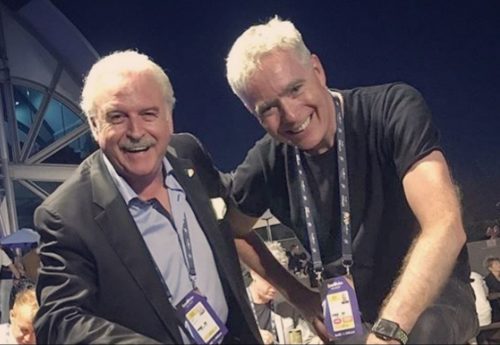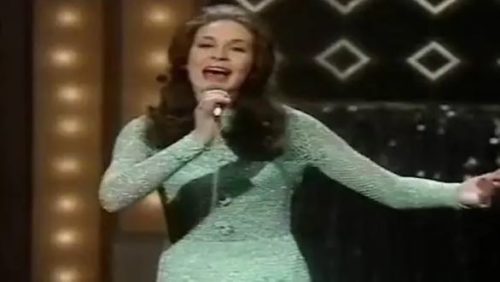
Ireland’s recent history at the Eurovision Song Contest has been a tale of seemingly never-ending woes. Despite long-held nostalgia for the winning streaks of bygone years, the country has yet to conjure up a new winning formula. The last ten years, in particular, have been harrowing for Irish Eurovision fans: based upon the past decade, Ireland currently has the worst track record at the contest.
Only three Irish entries have made it to the Grand Final over the last ten years: Jedward attempting to make waves with Waterline in 2012, Ryan Dolan’s Only Love Survives in 2013, and Ryan O’Shaughnessy’s Together in 2018. No entry managed to crack the top 15; they finished in 19th, 26th and 16th places respectively.

How can Ireland turn this depressing trajectory around?
Speaking to RTÉ Entertainment, Michael Kealy (Irish Head of Delegation and RTÉ Executive Producer) outlined his advice for those wishing to represent Ireland in Liverpool.
“Have a look at last year’s Eurovision top ten,” Kealy begins, “and ask yourself if your song is really a contender in the biggest, most competitive music show in the world.”
Last year’s Top 10 was not only very strong, but also immensely varied. It featured many genres, including excellent alternative hip hop/folk (Ukraine’s winning Stefania); Latin pop (Spain’s SloMo); avant-pop (Serbia’s In Corpore Sano); folk (Moldova’s eclectic Trenulețul); and indie pop (Maro’s Saudade, Saudade).
To this end, Kealy stresses that there is no singular formula for a “Eurovision” song. The recipe, if one exists, is simply authenticity:
“Don’t try and write a ‘Eurovision’ song. There isn’t a ‘typical’ Eurovision song and audiences spot songs which lack artistic integrity and are inauthentic.”
Encouraging authenticity is always welcome. Looking again at 2022’s Top 10, successful entries frequently are the product of a deep personal connection between artist and song (for example, In Corpore Sano and Saudade, Saudade) and/or faithfully reflect a country’s musical heritage (eg. Ukraine and Moldova’s folk stylings, Spain’s Latin flair, and the United Kingdom’s clear Bowie and Elton John influences).
Last year, the Irish Eurosong contender I’m Loving Me met some criticism from fans in this regard. Many felt that the song, written by those behind Poland’s 2021 entry The Ride, was created purely to be a ‘Eurovision song.’
Fans hoping for the Irish language to be heard at the adult contest again may also have a reason to be hopeful. Kealy seems to suggest that the Delegation would like to receive some Irish-language submissions:
“It is worth remembering that songs in native languages have done particularly well in recent years.”
To date, Sandie Jones’ 1972 entry Ceol an Ghrá remains the only Irish-language entry to be performed on the adult Eurovision stage.

“Performers must be outstanding,” Kealy adds, remarking that “being good isn’t enough any more.” Singers must be capable of performing flawlessly, as “one bum note on stage and it could be game over.”
Kealy’s comments join the list of criteria given by RTÉ for potential Eurovision entries. These include:
- A “contemporary” artist who is “an accomplished songwriter with a proven track record of success in the music industry.”
- A song with a performer already attached. The performer must be ready to perform in front of a massive audience.
- Performers must also have “intrinsic and obvious appeal to the core youth audiences who make up a significant amount of Eurovision viewers and fans.”
RTÉ also noted that they also may extend their own invitations toward established artists and/or songwriters to compete.
Applications for Ireland’s selection show, The Late Late Eurosong Special, will close shortly — time will tell if a song will be found which satisfies the hopes of the Delegation and those of Irish Eurovision fans!
Are #YOU encouraged by Ireland’s criteria for their 2023 Eurovision Entry? What kind of song would you like to see? Let us know down in the comments below, our forum, discord, or on our social media, @ESCUnited!


 ESC 2025: Switzerland will perform from spot #19 in the final
ESC 2025: Switzerland will perform from spot #19 in the final
 France: Louane to Perform “Maman” in Basel.
France: Louane to Perform “Maman” in Basel.
 Serbia: “Mila” Music Video Released!
Serbia: “Mila” Music Video Released!




